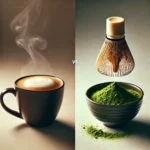In today’s world, where people are increasingly becoming health-conscious, there’s a growing debate around the beverages we consume daily. Two drinks that often come under scrutiny are sweet tea and soda. Both are popular, but with rising concerns about sugar intake, obesity, and overall health, many wonder: Is sweet tea better than soda? In this post, we’ll dive into the details, comparing the two based on their nutritional content, health impact, and other relevant factors, so you can make an informed choice.
Nutritional Comparison of Sweet Tea vs. Soda
Calories
One of the biggest concerns for many when choosing a beverage is its calorie count. On average, a 12-ounce can of soda contains about 140-150 calories, depending on the brand and flavor. Regular sodas are loaded with sugars, and these calories quickly add up, especially if consumed multiple times a day.
Sweet tea, on the other hand, varies widely depending on how it’s prepared. A homemade sweet tea with added sugar can have a similar calorie count to soda, but store-bought sweet tea may range anywhere from 70 to 150 calories per 12-ounce serving. While both drinks can be calorie-dense, sweet tea offers more flexibility because it can be made with less sugar or alternative sweeteners.
Sugar Content
The sugar content in soda is notoriously high. A single can of regular soda contains 35-39 grams of sugar, which is about 8-10 teaspoons! Consuming this amount of sugar regularly can lead to weight gain, insulin resistance, and a higher risk of type 2 diabetes.
Sweet tea, depending on preparation, also contains sugar, but typically less than soda. Store-bought sweet tea can have about 20-30 grams of sugar per serving, though you can reduce this by making homemade versions with less sugar or natural alternatives like honey or stevia.
Caffeine Levels
For many, caffeine is a key factor in choosing their beverage. Soda contains about 30-50 mg of caffeine per 12-ounce can, with some brands and flavors (like cola) on the higher end.
In contrast, sweet tea, particularly black tea-based versions, usually contains 20-50 mg of caffeine per serving. However, sweet tea made from green tea or herbal tea can have significantly lower caffeine levels or none at all, offering more options for those who are caffeine-sensitive.
Health Impact of Sweet Tea vs. Soda
Effects on Blood Sugar
Soda is packed with high-fructose corn syrup (HFCS) or cane sugar, both of which can lead to rapid spikes in blood sugar. Consuming soda regularly can contribute to insulin resistance and increase the risk of developing type 2 diabetes. A 2019 study published in The BMJ linked frequent soda consumption to a higher likelihood of metabolic disorders.
Sweet tea, though it can still be sugary, often contains less sugar than soda. Additionally, some teas, particularly green tea, contain compounds like catechins, which may help improve insulin sensitivity and blood sugar regulation. However, excessive sugar in sweet tea can still negatively impact blood sugar levels.
Impact on Weight and Obesity
Due to its high sugar content, soda has been directly linked to weight gain and obesity. A 2016 study found that those who regularly drink sugary beverages like soda have a 26% higher risk of becoming obese. These empty calories offer no nutritional value, and when consumed regularly, they can lead to significant weight gain.
Sweet tea can also contribute to weight gain if it’s consumed in excess and made with large amounts of sugar. However, there are lower-calorie alternatives like unsweetened tea or sweet tea made with natural sugar substitutes that are better for managing weight.
Hydration Factor: Which Drink Hydrates You Better?
Water Content
When it comes to hydration, the base of both sweet tea and soda is water, but the added ingredients can change their effectiveness in keeping you hydrated. Soda, despite being a liquid, is not ideal for hydration. The combination of high sugar content and caffeine (which has mild diuretic properties) can actually reduce the body’s ability to retain water. Drinking soda regularly may not quench your thirst as well as water or less sugary beverages.
On the other hand, sweet tea, especially if homemade, can be a better hydration choice, depending on its sugar content. Tea, especially when brewed at home with minimal sugar or natural sweeteners, can be quite hydrating. Herbal teas, which are caffeine-free, offer even better hydration, making them a superior choice to soda in this regard.
Sugars and Dehydration
Drinks with high sugar content, like soda, can contribute to dehydration. When you consume too much sugar, your body uses extra water to metabolize it, potentially leading to dehydration. The same applies to sugary sweet tea, although if you prepare it with less sugar or use natural alternatives, you can reduce this risk.
Moreover, diet sodas—though sugar-free—are not necessarily better. Some studies have shown that artificial sweeteners in diet sodas can interfere with the body’s hunger signals, leading to overconsumption of other foods, indirectly affecting hydration levels.
Alternative Sweeteners
Homemade sweet tea offers a great advantage in that you can control what goes into it. Many people are now turning to alternative sweeteners like stevia, honey, or agave, which have a lower impact on blood sugar levels and may be more hydrating than sugar-laden sodas. In contrast, the sweeteners in diet soda like aspartame or sucralose might not raise blood sugar, but their long-term effects are still being studied, and they may not have the same natural benefits as those found in teas.
Environmental and Ethical Considerations
Packaging and Waste
One important factor often overlooked when comparing beverages is their environmental impact. Soda is most commonly sold in single-use plastic bottles or aluminum cans, both of which contribute significantly to waste. According to the Environmental Protection Agency (EPA), beverage containers make up a large portion of municipal waste. Additionally, many sodas are sold in plastic packaging that takes years to decompose.
On the other hand, sweet tea offers more environmentally friendly options, particularly when brewed at home. Loose leaf or bagged tea generates minimal waste, and if you make your own tea, you can eliminate the need for plastic bottles. Even store-bought sweet tea can come in glass containers, which are more environmentally sustainable than plastic bottles or aluminum cans.
Sourcing and Ingredients
Beyond the packaging, there’s also the ethical question of sourcing. Soda production involves the mass use of high-fructose corn syrup (in the U.S.) and cane sugar (globally), which can be linked to unsustainable farming practices and labor issues. Sweet tea, particularly when using fair-trade or organic tea leaves, can be a more ethically sound choice. Supporting fair-trade tea ensures better working conditions for farmers and more sustainable agricultural practices.
In this regard, homemade sweet tea stands out as a more environmentally and ethically responsible option compared to soda.
Cost Comparison: Sweet Tea vs. Soda
Price Per Serving
When comparing the cost of sweet tea versus soda, it’s important to consider both store-bought and homemade options. A 12-ounce can of soda typically costs around $0.50 to $1.50, depending on the brand and whether it’s bought in bulk. While not excessively expensive per serving, the cost adds up quickly if you drink soda regularly.
On the other hand, store-bought sweet tea can cost about $1 to $2 per bottle, making it similar in price to soda. However, if you make sweet tea at home, it becomes significantly cheaper. A box of tea bags costs around $3 to $5 and can make multiple servings, meaning you pay just pennies per cup. Add some sugar or a sweetener of your choice, and the total cost remains lower than soda, especially if you already have the ingredients on hand.
Long-Term Financial Impact
While the cost per serving may not seem substantial in the short term, regular soda consumption can have a greater financial impact over time. Frequent soda drinkers often spend hundreds of dollars per year on sugary beverages, and that’s not accounting for the potential healthcare costs associated with the negative health effects of soda, such as diabetes and obesity.
Sweet tea, especially when made at home, is a more budget-friendly option in the long run. You can brew larger batches for a fraction of the cost and control the sweetness, making it a more economical and healthier choice for those looking to cut down on unnecessary expenses.
Is Sweet Tea Really Better Than Soda? Final Verdict
Now that we’ve explored several key factors—from nutrition and hydration to environmental impact and cost—let’s address the main question: Is sweet tea better than soda?
While both sweet tea and soda can be high in sugar and calories, sweet tea has more flexibility and potential health benefits. Here’s a quick recap:
- Health Impact: Soda, with its high sugar content and artificial additives, is linked to several health issues like obesity, diabetes, and dental decay. Sweet tea can be made with fewer sugars and natural ingredients, offering potential antioxidants if made from green or black tea, which soda lacks.
- Hydration: Sweet tea (especially when made with less sugar) is generally a more hydrating option than soda, which can actually contribute to dehydration due to its high sugar and caffeine content.
- Environmental and Ethical Considerations: Soda often comes in single-use plastic bottles or cans, contributing to environmental waste. Homemade sweet tea can be more sustainable, with less packaging waste and the potential to use ethically sourced ingredients.
- Cost: While soda and store-bought sweet tea are similarly priced, homemade sweet tea is more cost-effective, saving you money in the long term.
In conclusion, sweet tea is generally a better option than soda, especially if you’re conscious of your health, hydration, and environmental impact. However, like all things, moderation is key—sweet tea, when consumed in large quantities with excessive sugar, can still lead to health issues. Opt for homemade versions with minimal sugar or natural sweeteners for the healthiest, most economical choice.
Frequently Asked Questions (FAQs)
1. Is sweet tea without sugar a healthier option than soda?
Absolutely. Sweet tea without added sugar is far healthier than soda. When you remove sugar, you eliminate the primary source of empty calories that contribute to weight gain and other health problems. Unsweetened tea retains the natural antioxidants found in tea leaves, which have been linked to several health benefits, including improved heart health and reduced inflammation.
2. What’s worse for your teeth: sweet tea or soda?
Soda is generally worse for your teeth because it contains both high levels of sugar and acids that can erode tooth enamel over time. Sweet tea can also contribute to tooth decay if it contains a lot of sugar, but it is typically less acidic than soda. For the best oral health, opt for unsweetened tea and maintain regular dental hygiene practices.
3. Are diet sodas better than sweet tea in terms of sugar?
Diet sodas may contain no sugar, but they often include artificial sweeteners like aspartame or sucralose. While these sweeteners are generally recognized as safe, some research suggests they might lead to increased cravings for sweet foods or negatively impact metabolism. Sweet tea made with natural sweeteners like stevia or a small amount of honey can be a better alternative, as it avoids artificial additives.
4. Can you drink sweet tea every day without negative health effects?
Drinking sweet tea every day is fine if consumed in moderation and with minimal sugar. Excessive sugar, even from tea, can lead to health problems like weight gain or increased risk of diabetes. Opting for unsweetened or lightly sweetened versions is a healthier daily habit. Additionally, be mindful of your caffeine intake if your sweet tea is made from black or green tea.
Actionable Tips for Healthier Beverage Choices
1. Making Sweet Tea Healthier
- Reduce Sugar: If you’re used to sugary sweet tea, try gradually reducing the amount of sugar you add. This will help your palate adjust to a less sweet flavor over time.
- Use Natural Sweeteners: Replace sugar with healthier alternatives like honey, stevia, or agave. These sweeteners have a lower impact on blood sugar levels and are often preferred for a healthier diet.
- Try Herbal Teas: Herbal teas, which are caffeine-free and naturally lower in sugar, can be a great alternative. Peppermint, chamomile, or rooibos teas can be brewed and sweetened lightly for a refreshing, healthier option.
2. Soda Alternatives
- Sparkling Water: If you like the fizz of soda but want to avoid sugar and artificial ingredients, try sparkling water with a splash of natural fruit juice or a slice of lemon for flavor.
- Infused Water: Add fruits, herbs, or even cucumbers to plain water for a refreshing and flavorful drink without added sugar or calories.
- Unsweetened Iced Tea: Keep a pitcher of unsweetened iced tea in the fridge for a quick and hydrating beverage option. It’s flavorful, healthy, and can easily replace soda for those looking to cut back on sugary drinks.
3. Portion Control
Whether you’re drinking sweet tea or soda, portion control is crucial. Large servings of sugary drinks can quickly add up in calories and sugar content. Stick to smaller portions and savor your drink, rather than consuming large amounts in one go. Consider using smaller glasses or cups to naturally limit your intake.
Conclusion
In the ongoing debate between sweet tea and soda, sweet tea emerges as the better option, particularly when it’s homemade and consumed with minimal sugar. Soda, with its high sugar content and lack of nutritional value, poses several health risks when consumed regularly. Sweet tea, on the other hand, can be customized to suit your health goals and offers additional benefits from the antioxidants found in tea.
For those looking to make a healthier choice, unsweetened or lightly sweetened tea is the way to go. By reducing sugar, opting for natural sweeteners, and drinking in moderation, you can enjoy your favorite drinks without compromising your health.



